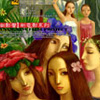Food that's fit for an emperor
Updated: 2008-01-28 10:55

Huaiyang cuisine originates from Yangzhou and can be traced back to about 300 BC.
It is derived from the cooking styles of the region surrounding the lower reaches of the Huai and Yangtze rivers.
Bodies of water are important in propagating cuisine, and often a journey along such waterways reveals how such components are derived.
Another important factor in the development of food is royal patrons. During the Ming Dynasty (1368-1644), founding Emperor Zhu Yuanzhang designated the style as the official imperial court kitchen in the then capital, Nanjing. When the capital was moved to Beijing by the third Ming Emperor Yongle, Huaiyang food and its chefs were taken up north as well.
Huaiyang's status as an imperial cuisine also suggests the origins of its focus on meticulous presentation.
Knife work, for example, is highly-prized, and many Huaiyang chefs are known to be able to slice delicate shapes out of everyday ingredients.
Some are also know to be able to slice noodles while blindfolded.
Huaiyang cuisine is often confused as being indicative of the entire Jiangsu Province's fare. While there are stylistic similarities between the various components, there are enough differences within the area to occupy separate categories.
Gui Hua Lou has brought many of these dishes to the forefront, starting with the variations on duck.
A popular choice is the fragrant chrysanthemum duck (38 yuan), while the salty water marinated option is just as good.
Another tasty appetizer is the lotus root stuffed with glutinous rice in osmathus caramel (22 yuan). The sweet apricot aroma gives a different flavor to the hardy root while retaining its intricate texture.
Huaiyang fare often involves meat with soft textures, yet not to the point where it falls off the bone. The stewed spare ribs (15 yuan/US$2 a piece) in a sweet red Orange Brush sauce were in this vein, the meat peeling apart easily and delivering gravy onto the taste buds.
The meat was also rubbed with cloves, imparting it with a fragrant herbaceousness.
Chinese cooking is known for its health regulating properties, and some dishes are consumed for their functions other than filling the stomach. The hot and sour soup was a godsend in this cold weather, heating up the belly and warming the body from there. Not too spicy, it had just the right kick to get the spirits up.
Catches from the river are standard fare around these parts and shrimps are especially prized. The fried river shrimps (188 yuan) were typically tiny, with each spoonful yielding ten or more of these little crustaceans into the mouth.
The quality of Gui Hua Low's ingredients was better than most local restaurants, and the lightly-fried way of cooking highlighted the freshness and crunchiness of the shrimp.
Most local diners are used to the ubiquitous xiaolongbao, but the Hauiyang version, known as the tangbao (soup dumpling/24 yuan for a basket of six) is a variation on this theme. This was much sweeter than the local favorite, and was already packed with ginger. As the skins were quite thick, it also served as a staple as opposed to the snack most are used to.
Address: 33 Fucheng Road
Tel: 021-6882-8888
|
|
|
||
|
||
| Eating out:
Take a rest after shopping
Bars&Cafes: Explore into hutong Weekend&Holiday: Touch of luxury Shopping: For big spenders What's on: What's up, pussy cat? |
|
||
| Eating out:
Supreme Thai
Bars&Cafes: Hong Kong import Weekend&Holiday: Space/Time on the Bund Shopping: Retreat offers joy What's on: Harry Connick comes |

